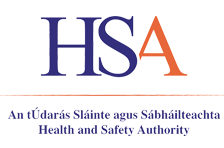Fatigue
Fatigue is physical and/or mental exhaustion. Fatigue can increase the risk of personal injury and is a significant cause of accidents and navigational errors which can put the vessel and crew at risk. It has been long identified as a major contributor to accidents at sea and can have devastating effects.
Inadequate rest, working very hard or for too long, disruption of the body clock by shift work, having poor quality or broken sleep, adverse weather, noise and vibration can all result in fatigue. It can also occur from loss of motivation caused by the boredom of long periods at sea or monotonous work. Chronic fatigue can gradually build up over a long period of time.
Signs and Symptoms
Look out for signs and symptoms of fatigue such as:
- Doing tasks in the wrong order.
- Finding it increasingly difficult to perform more than one task at once.
- Forgetting to do things more and more.
- Working on automatic and not thinking.
- Falling asleep for small amounts of time.
- Feeling tired or yawning all the time.
- Being more irritable than usual.
- Being frustrated by tasks.
- Having difficulty concentrating.
- Being uncommunicative.
- Not noticing risks or taking unusual risks.
- Responding slowly to situations.
Remember that people are often poor judges of their own level of fatigue.
Be aware of the effects of fatigue on you and your crew.
Be alert for the signs and ensure that adequate rest is taken. Encourage safe work practices and patterns and ensure that crew are fit to work.
Working Time
Under Maritime Legislation, The European Communities (Workers on Board Sea-Going Vessels)(Organisation of Working Time) Regulations specify the maximum permissible hours of work allowed and the minimum total hours of rest in specified time periods. Full legislation is available on IrishStatuteBook.ie, the website of the Office of the Attorney General.
